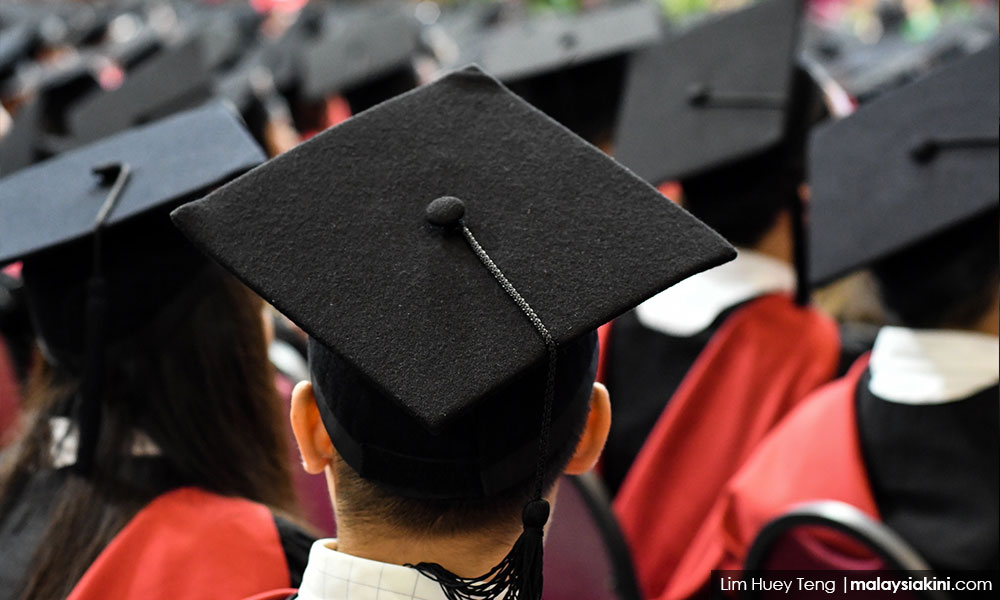The recent oppressive move of the Johor government to establish a rehabilitation centre for individuals in same-sex relationships to coercively alter their sexual orientation has sparked widespread uproar and raised serious concerns about breaching fundamental human rights.
In the rich tapestry of our nation, oppression persists across various facets of the daily lives of Malaysians. Oppression is not limited to the subordination of specific socio-cultural groups, such as the LGBTQI communities; it can also extend its grip to the broader populace through other manifestations.
For instance, the increasing curtailment of human agency as a result of discriminatory policies and shrinking freedom of expression in politics underscore how oppression can permeate and materialise through subtler yet pervasive systemic biases and power structures.
Beneath the surface of these oppressive structures lies a quieter but potent force sustaining oppression in our nation: the 'banking' model ingrained within education, employment, and mainstream media.
The concept of the ‘banking’ model originated from the Brazilian educational theorist Paulo Freire, who scrutinised the education system as a political instrument utilised to perpetuate oppression within society. This model, depicting students as passive "containers" to be “filled” with knowledge by authoritative figures, finds an alarming reflection in the Malaysian education system.
Anyone who has navigated its corridors can recognise this stark reality. Despite considerable strides in science and technology, our educational foundation remains steeped in a paradigm reminiscent of our colonial past.

We still closely follow in the footsteps of our British colonisers whereby examination stands as the linchpin of learning. This mirrors Freire’s depiction where teachers wield absolute control over the narrative of knowledge while relegating students to the passive role of mere recipients, devoid of agency and critical thinking, as reflected in our graduates.
Freire's ‘banking’ model echoes beyond the Malaysian education system, seeping into workplace structures. For instance, in the public service sector, a corporate hierarchy generally governs operations, emphasising top-down decision-making and bureaucratic processes.
Employees often find themselves confined to executing tasks deposited by upper management, fostering a culture of compliance and stifling individual initiative.
Moreover, authoritarian measures like extensive surveillance, rigid clock-in and clock-out systems, and stringent dress codes continue to act as tools to sustain oppressive structures. As a result, the enduring absence of critical thinking within Malaysia's workplace environment has led to a cascade of issues, including prevalent instances of bribery, embezzlement, fraud, cronyism, bid-rigging in procurement processes, and money laundering.
This ‘one-way’ model of information dissemination characterised by power imbalances does not cease at the workplace door. The media emerges as a prime platform for disseminating manipulated narratives and misinformation. Numerous instances, ranging from the manipulation of public opinion during elections to the shaping of narrative surrounding the 1MDB scandal, exemplify this control.
Moreover, dissenting voices face severe repercussions through draconian media legislations such as the Sedition Act of 1948, the Communications and Multimedia Act 1998 (CMA), and the Printing Press and Publications Act 1984 (PPPA), leaving little room for free expression.
Manipulations of information
Academic freedom suffers a similar fate, as censorship extends to academic publications expressing unapproved political stances or criticising the government. According to the Bureau of Democracy, Human Rights, and Labour as of November 2020, over 1,700 academic publications in Malaysia had been banned. These orchestrated manipulations of information bear a striking resemblance to the control exerted by a teacher in Freire’s ‘banking’ model of education, where authority dictates and shapes the flow of information to maintain dominance.
To break free from the shackles of oppression in our nation, the transformation must commence within the very systems that uphold it - education, workplaces, and media. The archaic 'banking' model of information dissemination must give way to a new paradigm fostering collaborative philosophical dialogues among our populace.
Philosophical dialogues emphasise the co-creation of knowledge, assumption probing, and exploration of diverse viewpoints, empowering individuals to discern misinformation shaping their perceptions, and recognise personal and systemic prejudices and biases. This, in turn, generates the momentum for tangible actions, disrupting the existing status quo.
In practice, our classroom setting should transition from the ‘banking’ model of education to one that embraces philosophical inquiries and dialogues. Take the Moral subject, for example; rather than prescribing the values as mere memorisation material to the students, critical dialogues on pertinent issues ranging from responsibilities within interpersonal relationships, to ethical technology usage and governance practices should take precedence.
Culture of critical inquiry
Encouragingly, there is a burgeoning movement to introduce philosophical studies into higher education in Malaysia, where it was previously absent. Notably, Universiti Utara Malaysia (UUM) now offers the Bachelor of Philosophy, Law, and Business (BPLB) programme, and Taylor’s University is set to launch the Philosophy, Politics, Economics (PPE) programme. These initiatives mark a positive shift toward integrating philosophical dialogues into the curricula.
Moving beyond formal education, informal dialogues within workplaces and daily interactions play a pivotal role in fostering a culture of critical inquiry. These dialogues have the power to create a ripple effect, inciting change within oppressive structures and legislations.
Effective facilitation of such dialogues can be achieved through the active engagement of think tanks, grassroots organisations, and philosophy bodies like the Malaysian Philosophy Society, Pertubuhan Pendidikan Falsafah dan Pemikiran Malaysia, Socrates Cafe, all dedicated to nurturing critical inquiry and dialogue in our country.
The journey toward liberation in Malaysia will undoubtedly be lengthy and arduous. Nevertheless, the earlier we sow the seeds of change through collaborative dialogues, the sooner we can reap the harvest of a freer tomorrow. - Mkini
CHEW ZHUN YEE is managing director of Malaysian Philosophy Society.
The views expressed here are those of the author/contributor and do not necessarily represent the views of MMKtT.



No comments:
Post a Comment
Note: Only a member of this blog may post a comment.